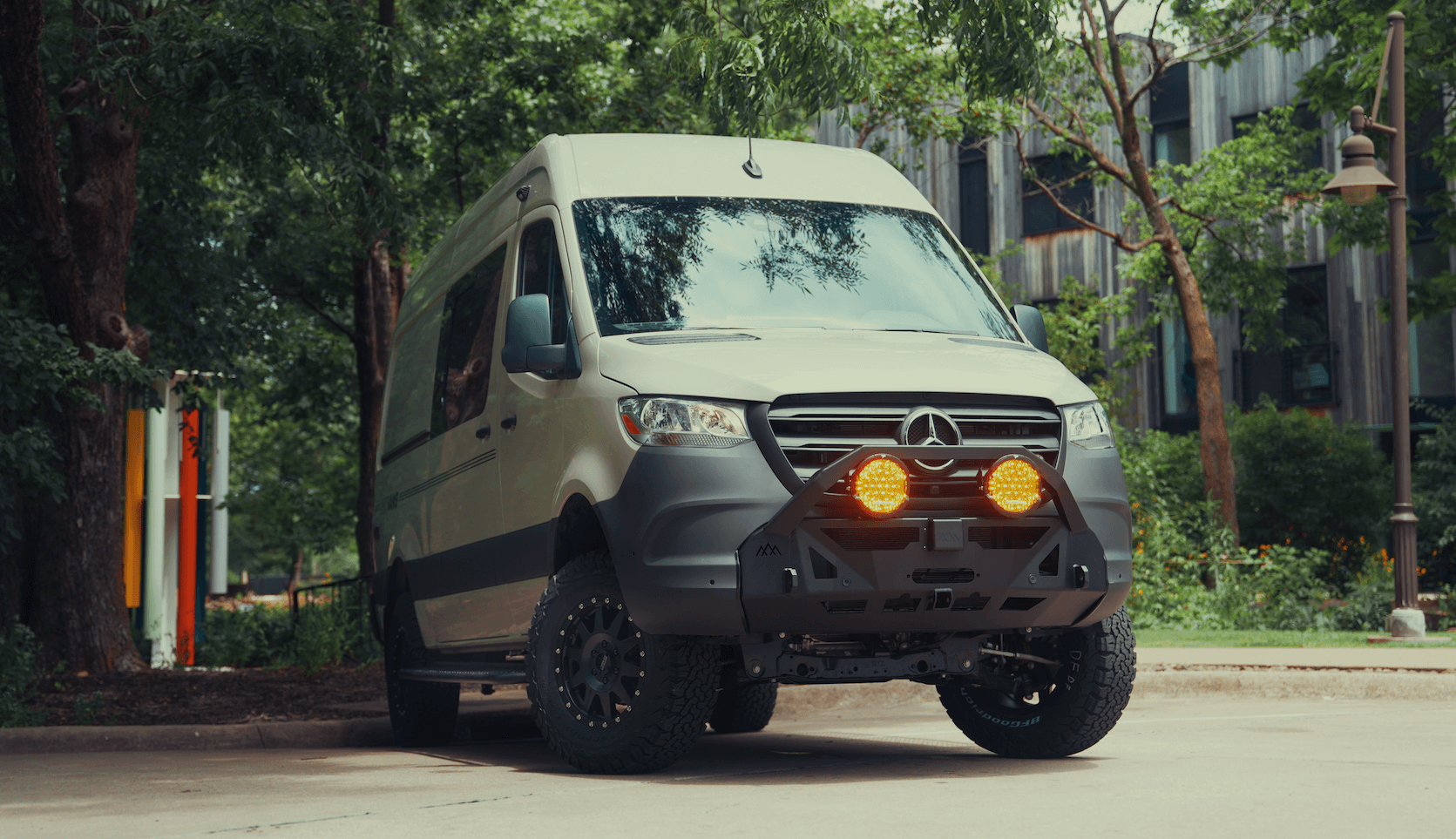Recreational Vans

An overland base camp van acts as a mobile hub that carries people, gear, and essential systems into remote areas while keeping camp routines simple. It blends shelter, cooking, water, power, and storage so you can set up quickly, explore all day, and return to a ready made home base. The best versions balance comfort with reliability, emphasizing field serviceable components and straightforward workflows. Think of it as a compact expedition cabin that moves with you, then stabilizes the moment you park.
Choosing a platform shapes the entire build. Modern AWD vans offer traction and interior volume, while suspension upgrades, all terrain tires, and careful weight distribution protect drivability. Plan payload early. Add up the mass of batteries, water, cabinetry, racks, and accessories to keep the van within safe limits. A lighter, well organized interior often outperforms a heavy build on rough tracks.
Start with an energy audit. A 12 volt fridge, induction cooktop, lights, fans, and device charging commonly land in the 80 to 150 amp hour per day range. Lithium batteries in the 200 to 600 amp hour range, paired with a 2000 to 3000 watt inverter, cover most needs. Mix inputs: alternator charging for driving days, 200 to 400 watts of roof solar for day to day balance, and a quality MPPT controller for efficiency. Prioritize neat wiring, fusing, and service access. Redundancy matters, so carry a compact jump starter and a basic meter.
Water and heat define comfort. A practical setup uses 20 to 40 gallons of fresh water, a small grey tank, and point of use filtration. Winter travel benefits from a diesel air heater sized 2 to 5 kilowatts with insulated lines and low temperature tolerant plumbing. For hot climates, maximize cross breeze with roof and window fans, consider 12 volt air conditioning only with a large battery bank and charging strategy, and deploy shade early. An outdoor shower with a quick connect keeps mud and sand outside the living space.
Storage is the backbone of a settled camp. Put dense items low and centered. Use L track or smart rails for tie downs, and reserve floor length for long items like skis, recovery boards, or a compact table. A drawer for tools, a bin for kitchen consumables, and a vertical slot for camp chairs prevent gear sprawl. Choose a 65 to 85 liter compressor fridge for multi day trips, and add insulated covers in hot regions.
Travel days are smoother when navigation and communication are simple. Pair offline topo maps with paper backups, mark fuel and water refill points ahead of time, and plan turnaround times before the sun drops. GMRS radios help convoy travel. Satellite messaging adds a safety layer where cellular coverage disappears. Keep a battery monitor and tire pressure data visible at a glance. Preventive checks before and after dirt sections catch loose hardware and leaks early.
Recovery gear should match vehicle weight and terrain. Essentials include a quality tire repair kit, onboard air compressor, traction boards, a rated strap, soft shackles, and a shovel. A front recovery point and rear hitch recovery link are non negotiable. If you add a winch, size it at roughly one and a half times gross vehicle weight and practice single line pulls in a safe area. Safety also means a first aid kit you know how to use, fire extinguisher, smoke and CO alarms, and a battery monitor that alerts you before power gets tight.
Campsite choices shape the experience. Seek firm ground, natural wind breaks, and a level surface to cut setup time. Position the awning for morning shade and late day shelter. Ground mats keep dust down and boots cleaner. A two burner induction or single portable unit keeps cooking fast, while a compact sink with spray head makes dish duty efficient. Store headlamps, rain layers, and warm hats near the door so you are ready for temperature swings.
Route planning respects land agency rules and seasonal closures. Learn local fire restrictions, wildlife guidance, and Leave No Trace practices. In winter, protect water lines, carry traction aids, and limit door open time to retain heat. In summer, use bug screens and light colors to reduce heat load. When the day is done, pack away only what must be stowed and leave a simple morning routine so you can break camp in minutes.
The final piece is repeatability. The best overland base camp van feels the same every trip because your systems and storage never change. Label bins, standardize cord lengths, and keep spares in a single kit. The goal is predictable camp rhythm that lets you spend more time outside and less time searching for gear.
To turn this planning into a finished rig, choose a builder that understands off grid systems, payload management, and real world camp workflows. Tailored layouts, reliable electrical, safe water, and secure storage separate a great base camp from an expensive project that misses the mark. If you want a shop that designs around how you actually travel, explores charging strategies for your routes, and builds clean serviceable systems, OZK can help.
Build with OZK
What we do OZK designs and builds adventure focused vans for travel and overland use. We create tailored interiors, electrical systems, water and heat, storage, lighting, racks, and protective gear. Our team in Fayetteville Arkansas delivers rigs that feel dialed the first night at camp and every trip after. Fill out the form and let us turn your overland base camp van plan into a road ready reality.
Ready to turn your overland base camp van plan into a purpose built rig? Tell us how you travel and we will design the systems, storage, and comfort to match. Start your custom build with OZK today.
ADDRESS:
6159 E Huntsville Rd, Fayetteville, AR 72701
PHONE:
(479) 326-9200
EMAIL:
info@ozkvans.com